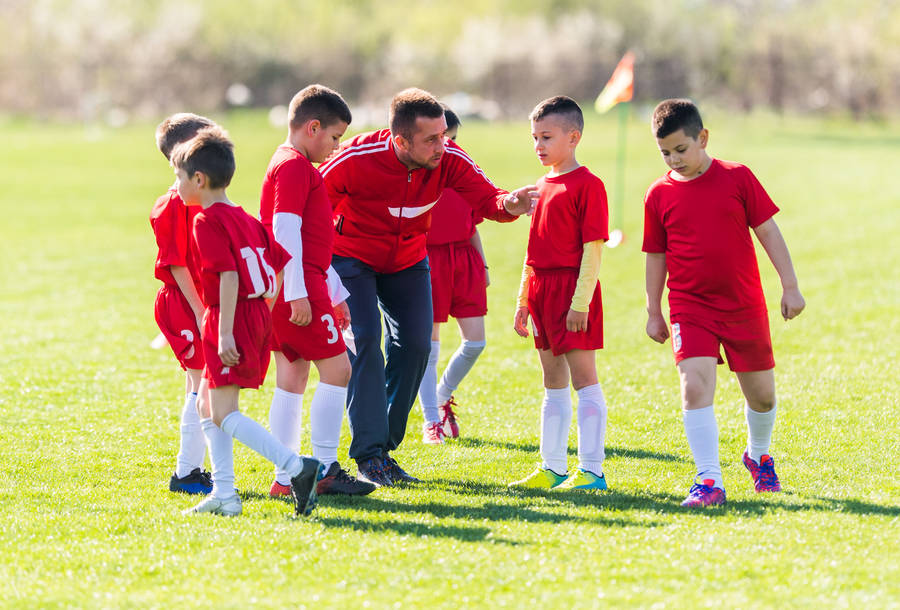Playing team sports offers more than just physical health benefits. Engaging in a team environment can improve mental health, build resilience, and help people form positive social connections. In recent years, the popularity of team sports has grown alongside the rise of online sports betting in the UK, with many people following sports closely and looking for ways to participate in the excitement.
While the betting industry has expanded, more people are also recognising the value of being involved in team sports themselves. Playing sports as part of a team can boost mood, enhance self-esteem, and provide a sense of belonging. Below, we explore how team sports can positively impact mental health and contribute to a healthier, happier life.
The Social Connection in Team Sports
One of the primary benefits of team sports is the social connection it fosters. In a world where isolation and loneliness are increasingly common, team sports can provide a strong antidote. When people join a team, they become part of a supportive group working towards common goals. This shared sense of purpose builds camaraderie, allowing team members to bond and support each other on and off the field. Social connection has been shown to reduce stress and improve mental health, providing a buffer against feelings of isolation.
There are now a range of ways to enjoy team sports beyond playing them. As the online sports betting industry in the UK has grown rapidly, sports have become even more visible in everyday life. According to iGaming expert Peter Addison, the best sports betting sites provide a large range of odds and sports to bet on. Players are also treated to generous bonuses and have the novelty of perks like instant payouts and quick registrations.
All of this has added up to a booming industry that has become intertwined with the wider sports industry in some very visible ways. Now, in today’s highly digitised world, many people associate the industry with the enjoyment of sports, and have become the reason why many people avidly follow team sports.
In other cases, this added visibility has encouraged more people to engage with sports beyond just watching or betting. Joining a local team, or even amateur leagues, offers a social setting that can do a world of wonders for people of different ages.
The social aspect of team sports builds friendships, which are essential for mental well-being. Being part of a team gives individuals a sense of community, helping them feel connected and valued. This connection reduces feelings of loneliness and can significantly improve mental health over time.
Building Self-Confidence Through Achievement
Team sports provide many opportunities for personal growth and achievement. Each practice, game, or training session allows individuals to develop new skills and improve their physical abilities. As players learn the rules, strategies, and techniques of the game, they build confidence in their abilities. Confidence is crucial for mental health because it affects how people view themselves and their ability to handle challenges.
Winning games, achieving personal bests, or even learning from mistakes can all contribute to self-esteem. In team sports, each success is shared and celebrated, which can amplify the sense of accomplishment. Conversely, losses and setbacks become learning opportunities within the supportive structure of the team.
This structure helps players develop resilience, as they learn that failure is a part of growth and that they have the support of their teammates. Over time, the process of overcoming challenges in sports can translate to a more confident approach to challenges in other areas of life. For many, this boost in self-confidence extends beyond the field, helping them face personal or professional difficulties with a positive outlook.
Mental Resilience and Stress Relief
Playing team sports can be a powerful stress reliever. Physical activity is widely recognised for its ability to reduce stress, and team sports combine this benefit with the added layer of social interaction and camaraderie. When people engage in physical exertion, the body releases endorphins, which are chemicals that improve mood and reduce feelings of stress. The shared physical challenges in team sports create a release for built-up tension and anxiety, allowing participants to leave behind daily worries and focus on the game.
Team sports also build mental resilience, helping people handle stress in healthier ways. In a game, players are constantly facing obstacles, whether it’s a competitive opponent, a missed shot, or a difficult play. Learning to navigate these pressures helps players develop a stronger sense of control over their responses to stress.
This resilience often transfers into daily life, where team players are more equipped to handle stressful situations. For individuals struggling with anxiety, the routine of practice and the structured environment of team sports provide a comforting sense of predictability. This structured environment creates a safe space where individuals can gradually build resilience without feeling overwhelmed.
Enhanced Emotional Well-being Through Group Support
Team sports offer a valuable support system that enhances emotional well-being. When people play in a team, they are surrounded by others who share their goals and understand the effort required. This shared experience can create a strong bond, making team members more open to offering and receiving emotional support. Studies have shown that social support is closely linked to lower levels of anxiety and depression, making it a critical element of mental health.
In team sports, players learn to rely on each other for encouragement, motivation, and guidance. This dynamic creates a unique environment where individuals feel free to express their emotions without fear of judgment. For someone struggling with low mood or confidence, encouragement from teammates can have a profound positive impact.
Team sports promote a sense of unity and mutual understanding, which is beneficial for emotional health. The empathy and shared goals within the team create a sense of belonging, helping individuals feel valued and accepted. Being part of a team also provides a space where individuals can open up about their struggles in a supportive environment, reducing feelings of isolation.
Instilling a Sense of Routine and Discipline
Routine is essential for mental health, and team sports can help instil a sense of discipline and structure. Most team sports require regular practice sessions, training, and games, which build a predictable routine. This structure is especially helpful for individuals who may feel overwhelmed or unmotivated in their daily lives.
The consistency of a training schedule can create a sense of stability, giving individuals a clear goal to work towards each week. For people who struggle with mood or motivation, this structured routine can be a lifeline, providing motivation and direction. Discipline is another benefit of team sports. In a team environment, players learn the importance of commitment, time management, and hard work.
Each practice and game requires preparation, dedication, and a commitment to improving both individually and as a team. Developing these habits can positively impact mental health by fostering a sense of control and responsibility.
When individuals feel more disciplined, they often experience increased self-worth and personal satisfaction, knowing they are contributing to something larger than themselves. The discipline and routine developed in team sports can have long-lasting benefits, helping individuals develop habits that support mental wellness.



















